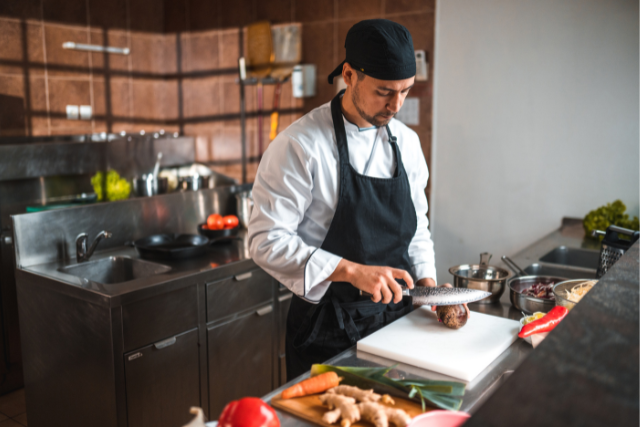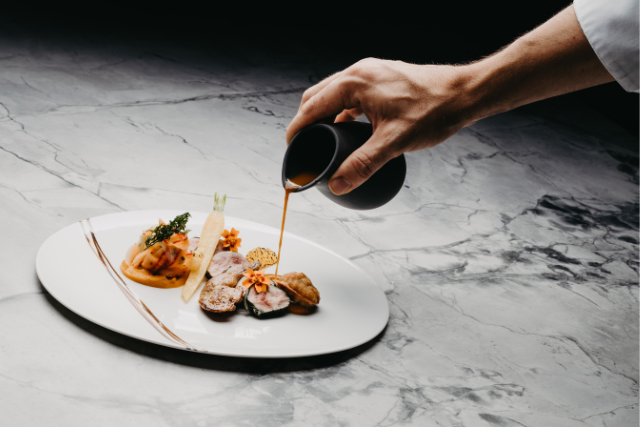
Culinary arts might seem reserved for young, energetic chefs-in-training, but that couldn’t be further from the truth. People are drawn to cooking for countless reasons, and at every stage of life. Some aspire to elevate their home-cooked meals, while others dream of transforming their passion for food into a rewarding career. Whatever your motivation, the world of culinary arts is always within reach.
The thought of attending culinary school can feel daunting at first. But it’s not about striving for perfection or measuring up to professional chefs. It’s about gaining valuable skills, unlocking your creativity, and discovering how far your passion can take you.
Institutions like CCA Manila offer comprehensive programs designed to make culinary education inviting and accessible, ensuring that anyone, regardless of experience, can explore this exciting path.
Breaking Myths About Late Beginnings in Culinary Arts

Myth 1: Culinary Skills Require a Lifetime to Master
The Reality: Mastery comes from focused effort, not early starts.
There’s an idea that becoming skilled in the kitchen takes decades, but many successful chefs and food professionals started with little experience. Mastery is less about when you begin and more about consistent practice and learning.
Techniques can be taught, refined, and mastered much faster in a professional culinary setting than many expect. Formal training, such as the programs offered at some of the best culinary schools, provides a solid foundation with structured guidance, ensuring students learn the fundamentals efficiently.
For those looking to take a structured approach, pursuing a Diploma in Culinary Arts is an excellent way to start this journey. With dedication and the right training, even intricate techniques like pastry-making or plating can become second nature in a relatively short time.
Myth 2: You Need Natural Talent To Succeed in Culinary Arts
The Reality: Passion and practice outweigh innate ability.
Many believe exceptional cooking is reserved for those with a natural flair. But culinary arts is as much about learning and perseverance as it is about creativity. Like any skill, it can be developed through proper training and repetition.
Professional programs are designed to break down even the most complex processes into manageable steps, making them accessible to learners of all levels. For instance, baking—often viewed as a precise and intimidating art—becomes approachable when taught methodically.
Myth 3: It’s Too Late to Switch Gears or Take Your Interest Seriously
The Reality: Late beginnings offer fresh perspectives
Starting a culinary journey later in life often brings unexpected advantages. Life experiences and diverse perspectives can fuel creativity, innovation, and a distinctive approach to the culinary world.
Some of the most inspiring chefs, restaurateurs, and food entrepreneurs began their path outside traditional routes. Many started as home cooks, eventually turning their passion for food into successful ventures like restaurants, catering services, or unique culinary businesses. Formal training, pursued at the right moment, helped them refine their craft and bring their vision to life.
CCA Manila recognizes the value of varied experiences and offers programs to meet different aspirations. These courses provide essential skills and industry insights, equipping students to step into the culinary field confidently.
Myth 4: You Need To Know Everything Before Starting Culinary Training
The Reality: Culinary education is about learning, not perfection.
Formal training aims to teach you what you don’t know. Culinary schools provide step-by-step instruction, starting with foundational skills like knife techniques and simple methods and building up to advanced concepts such as menu planning and food innovation. No one starts as an expert, and the best schools understand that learning is a journey.
Myth 5: Culinary Education Is Only for Future Chefs
The Reality: Culinary training is a gateway to endless business opportunities.
For many, it serves as the foundation for building successful businesses. Entrepreneurs can use culinary training to develop concepts for restaurants, catering services, or food trucks, turning their passion for food into profitable ventures.
The versatility of culinary education extends into niche areas like food product development, where individuals create unique offerings such as artisanal goods, sauces, or baked items to sell locally or online. It also equips aspiring food bloggers, content creators, and food stylists with the technical expertise to elevate their work and stand out in a competitive digital landscape.
Practical Steps for Starting Your Culinary Journey

A. Start Small
Jumping into culinary arts doesn’t mean you need to dive straight into advanced techniques or complex dishes. Beginning with a foundational course for cooking tailored to your skill level allows you to build confidence and develop a strong understanding of the basics.
Here are some programs to consider:
Professional Chef Plus
This course offers a simplified approach to culinary fundamentals, providing theoretical knowledge and practical kitchen application. It’s a great starting point for those who want to understand core cooking techniques in a structured way.
Fundamentals in Culinary Arts
Ideal for hobbyists, budding entrepreneurs, or those already working in a commercial kitchen, Fundamentals in Culinary Arts helps graduates gain confidence in their skills while mastering cooking essentials.
Professional Cook Certification + Cooking Club
A ten-week virtual program that blends professional training with the convenience of learning from home. This course is perfect for aspiring cooks who want to build their culinary skills and knowledge in a supportive, interactive environment.
Introduction to Pastry Arts + Baking Club
For those with a sweet tooth, Introduction to Pastry Arts + Baking Club focuses on pastry arts and fundamentals. It’s an excellent choice for aspiring bakers and pastry chefs looking to hone their craft.
B. Experiment Without Fear
Trying new things is an essential part of learning. Not every dish will turn out perfectly, and that’s okay. Mistakes are valuable lessons that help you improve. Growth in cooking comes from a willingness to embrace trial and error.
- Test recipes that challenge your comfort zone.
- Work with ingredients you haven’t tried before to broaden your experience.
- Use each experience—successful or not—as a stepping stone for refining your craft.
C. Join a Culinary Community
Connecting with others who share your interest in cooking adds depth to your journey. Surrounding yourself with like-minded individuals provides inspiration, support, and the opportunity to exchange ideas and tips.
Taking the First Step with CCA Manila
Starting something new in culinary arts is an opportunity to explore, learn, and create in ways that matter to you. At CCA Manila, you’ll find a space where practical learning meets creativity, giving you the tools to expand your skills and learn new possibilities in the kitchen.
Our team of experienced mentors, hands-on programs, and a welcoming community are all designed to make your journey enjoyable and fulfilling. We focus on progress, discovery, and giving you the confidence to create something meaningful in the kitchen. Enroll today and turn your passion into expertise!
